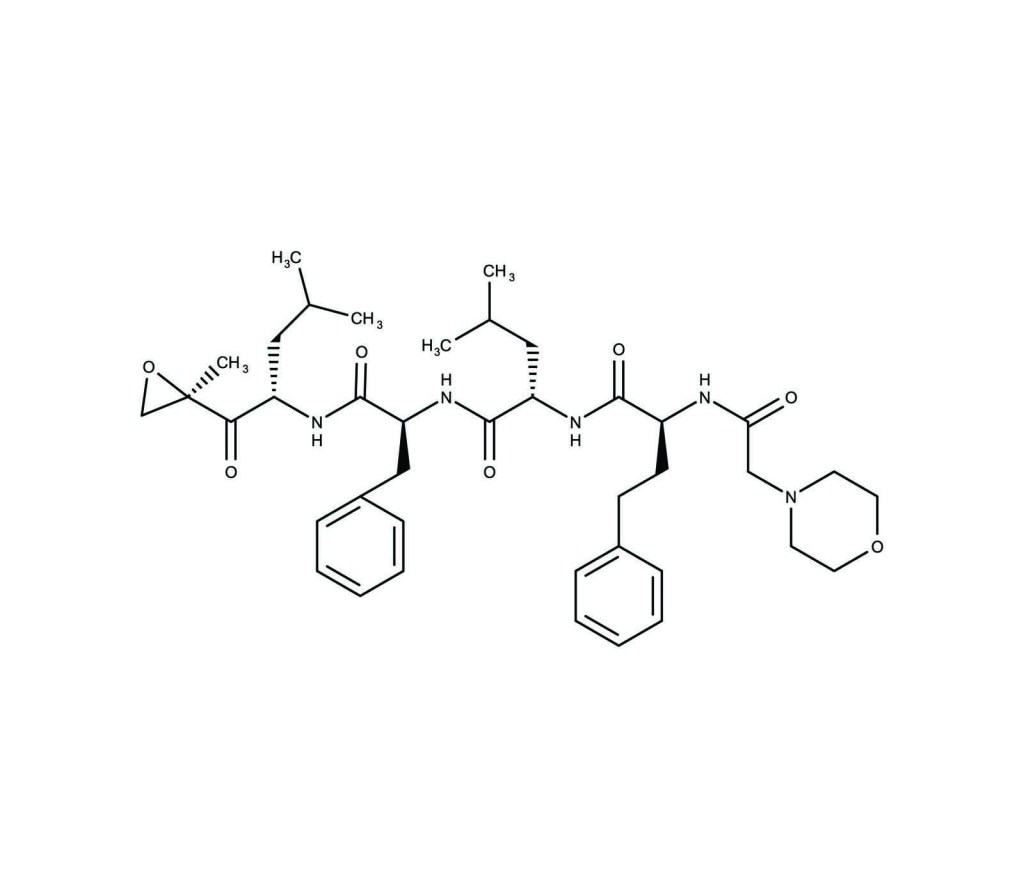Carfilzomib is a second-generation, irreversible proteasome inhibitor that selectively targets the chymotrypsin-like activity of the 20S proteasome. It is structurally related to epoxomicin and is approved for the treatment of relapsed or refractory multiple myeloma. Carfilzomib exhibits potent activity with an IC50 of 5 nM in multiple myeloma cell lines such as ANBL-6 and RPMI 8226.
Key features and applications include:
- Irreversible Binding: Covalently binds to the N-terminal threonine of the proteasome’s β5 subunit, leading to sustained inhibition.
- Selective Proteasome Targeting: Minimizes off-target effects compared to first-generation inhibitors like bortezomib.
- Induces Apoptosis: Triggers accumulation of misfolded proteins and activates the unfolded protein response (UPR), leading to cell death in cancer cells.
- Overcomes Drug Resistance: Effective in bortezomib-resistant multiple myeloma models.
Research Applications:
- Multiple myeloma and hematologic malignancy models
- Proteostasis and protein degradation studies
- Apoptosis and ER stress pathway analysis
- Combination therapy and resistance profiling
Relevant disease states include:
- Multiple Myeloma: Clinically approved for relapsed/refractory cases, especially in patients resistant to other proteasome inhibitors.
- Mantle Cell Lymphoma (MCL): Investigated for its efficacy in proteasome-dependent B-cell malignancies.
- Solid Tumors: Explored in preclinical models of breast, pancreatic, and lung cancers for its ability to disrupt proteostasis.
- Neurodegenerative Diseases: Studied for its role in modulating protein aggregation and degradation pathways.
Shipping: Available products typically ship within 24/48h, via priority shipping.
Do you need support? Contact Customer Service or Technical Support.
Online Account
Access or Create Your Account
| Regulatory Status |
RUO – Research Use Only |
|---|
Last modified: July 28, 2025
 Lab Essentials
Lab Essentials AMPIVIEW® RNA probes
AMPIVIEW® RNA probes Enabling Your Projects
Enabling Your Projects  GMP Services
GMP Services Bulk Solutions
Bulk Solutions Research Travel Grant
Research Travel Grant Have You Published Using an Enzo Product?
Have You Published Using an Enzo Product?

